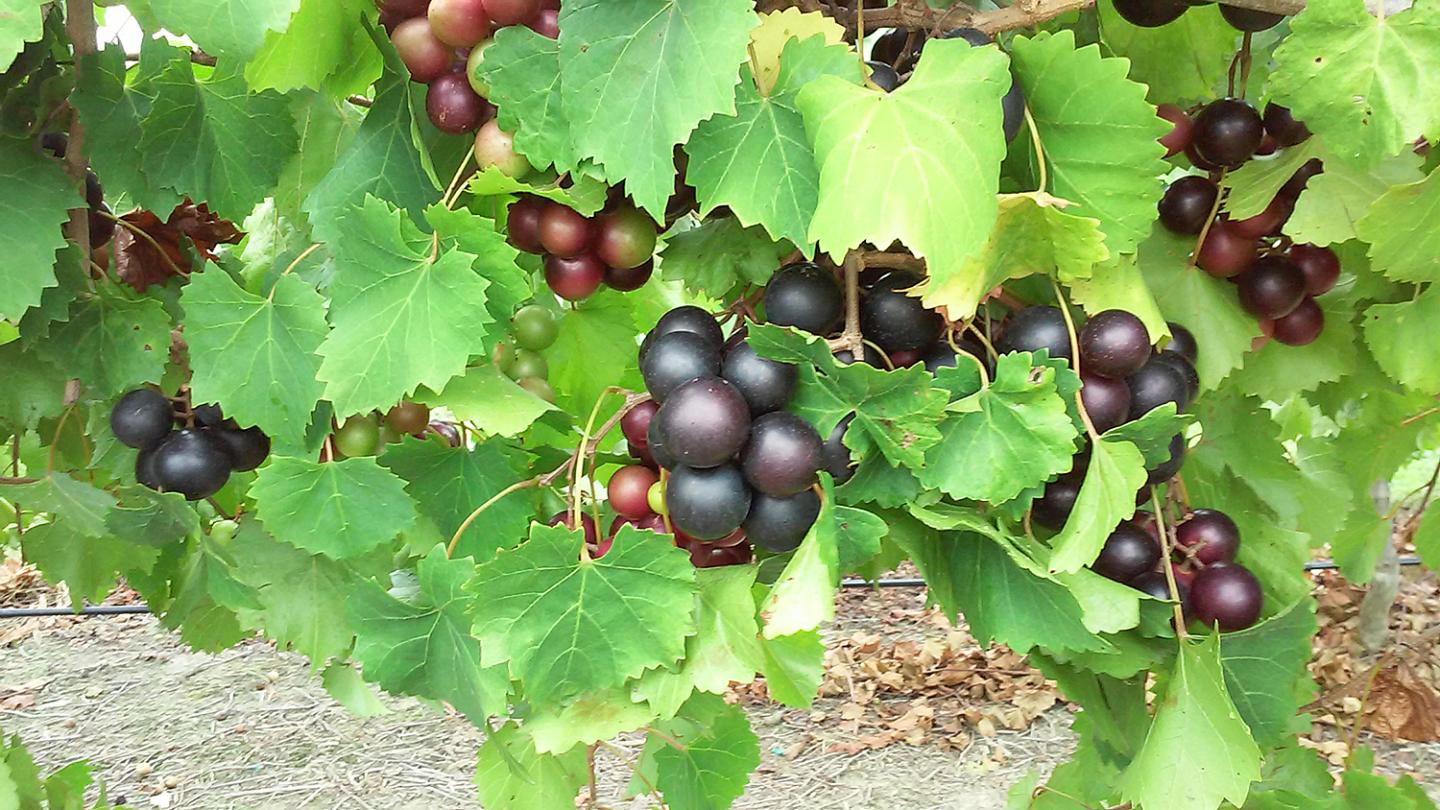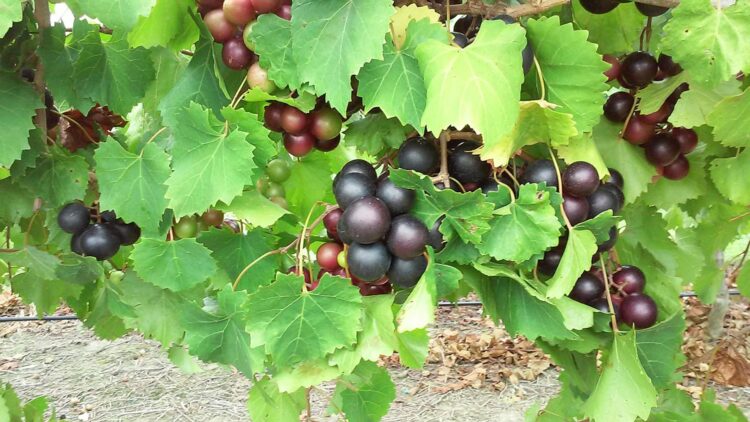
Credit: De-Yu Xie, NC State University
Chemical compounds in foods or beverages like green tea, muscadine grapes and dark chocolate can bind to and block the function of a particular enzyme, or protease, in the SARS-CoV-2 virus, according to a new study by plant biologists at North Carolina State University.
Proteases are important to the health and viability of cells and viruses, says De-Yu Xie, professor of plant and microbial biology at NC State and the corresponding author of the study. If proteases are inhibited, cells cannot perform many important functions – like replication, for example.
“One of our lab’s focuses is to find nutraceuticals in food or medicinal plants that inhibit either how a virus attaches to human cells or the propagation of a virus in human cells,” Xie said.
In the study, the NC State researchers performed both computer simulations and lab studies showing how the so-called “main protease” (Mpro) in the SARS-CoV-2 virus reacted when confronted with a number of different plant chemical compounds already known for their potent anti-inflammatory and antioxidant properties.
“Mpro in SARS-CoV-2 is required for the virus to replicate and assemble itself,” Xie said. “If we can inhibit or deactivate this protease, the virus will die.”
Computer simulations showed that the studied chemical compounds from green tea, two varieties of muscadine grapes, cacao powder and dark chocolate were able to bind to different portions of Mpro.
“Mpro has a portion that is like a ‘pocket’ that was ‘filled’ by the chemical compounds,” Xie said. “When this pocket was filled, the protease lost its important function.”
In vitro lab experiments completed by Yue Zhu, an NC State Ph.D. student in Xie’s lab, showed similar results. The chemical compounds in green tea and muscadine grapes were very successful at inhibiting Mpro’s function; chemical compounds in cacao powder and dark chocolate reduced Mpro activity by about half.
“Green tea has five tested chemical compounds that bind to different sites in the pocket on Mpro, essentially overwhelming it to inhibit its function,” Xie said. “Muscadine grapes contain these inhibitory chemicals in their skins and seeds. Plants use these compounds to protect themselves, so it is not surprising that plant leaves and skins contain these beneficial compounds.”
###
The paper appears in Frontiers in Plant Science. Zhu is the paper’s first author. The research was supported by the U.S. Department of Agriculture.
Note to editors: An abstract of the paper follows.
Docking characterization and in vitro inhibitory activity of flavan-3-ols and dimeric proanthocyanidins against the main protease activity of SARS-Cov-2
Authors: Yue Zhu and De-Yu Xie, NC State University
Published: Nov. 30, 2020 in Frontiers in Plant Science
DOI: 10.3389/fpls.2020.601316
Abstract: We report to use the main protease (Mpro) of SARS-Cov-2 to screen plant flavan-3-ols and proanthocyanidins. Twelve compounds, (-)-afzelechin (AF), (-)-epiafzelechin (EAF),(+)-catechin (CA), (-)-epicatechin (EC), (+)-gallocatechin (GC), (-)-epigallocatechin (EGC), (+)-catechin-3-O-gallate (CAG), (-)-epicatechin-3-O-gallate (ECG), (-)-gallocatechin-3-O-gallate (GCG), (-)-epigallocatechin-3-O-gallate (EGCG), procyanidin A2 (PA2), and procyanidin B2 (PB2), were selected for docking simulation. The resulting data predicted that all 12 metabolites could bind to Mpro. The affinity scores of PA2 and PB2 were predicted to be ?9.2, followed by ECG, GCG, EGCG, and CAG, ?8.3 to ?8.7, and then six flavan-3-ol aglycones, ?7.0 to ?7.7. Docking characterization predicted that these compounds bound to three or four subsites (S1, S1?, S2, and S4) in the binding pocket of Mpro via different spatial ways and various formation of one to four hydrogen bonds. In vitro analysis with 10 available compounds showed that CAG, ECG, GCG, EGCG, and PB2 inhibited the Mpro activity with an IC50 value, 2.98 ± 0.21, 5.21 ± 0.5, 6.38 ± 0.5, 7.51 ± 0.21, and 75.3 ± 1.29?M, respectively, while CA, EC, EGC, GC, and PA2 did not have inhibitory activities. To further substantiate the inhibitory activities, extracts prepared from green tea (GT), two muscadine grapes (MG), cacao, and dark chocolate (DC), which are rich in CAG, ECG, GAG, EGCG, or/and PB2, were used for inhibitory assay. The resulting data showed that GT, two MG, cacao, and DC extracts inhibited the Mpro activity with an IC50 value, 2.84 ± 0.25, 29.54 ± 0.41, 29.93 ± 0.83, 153.3 ± 47.3, and 256.39 ± 66.3?g/ml, respectively. These findings indicate that on the one hand, the structural features of flavan-3-ols are closely associated with the affinity scores; on the other hand, the galloylation, and oligomeric types of flavan-3-ols are critical in creating the inhibitory activity against the Mpro activity.
Media contacts:
De-Yu Xie, [email protected]
Mick Kulikowski, News Services, 919.218.5937 or [email protected]
Media Contact
De-Yu Xie
[email protected]
Original Source
https:/
Related Journal Article
http://dx.





